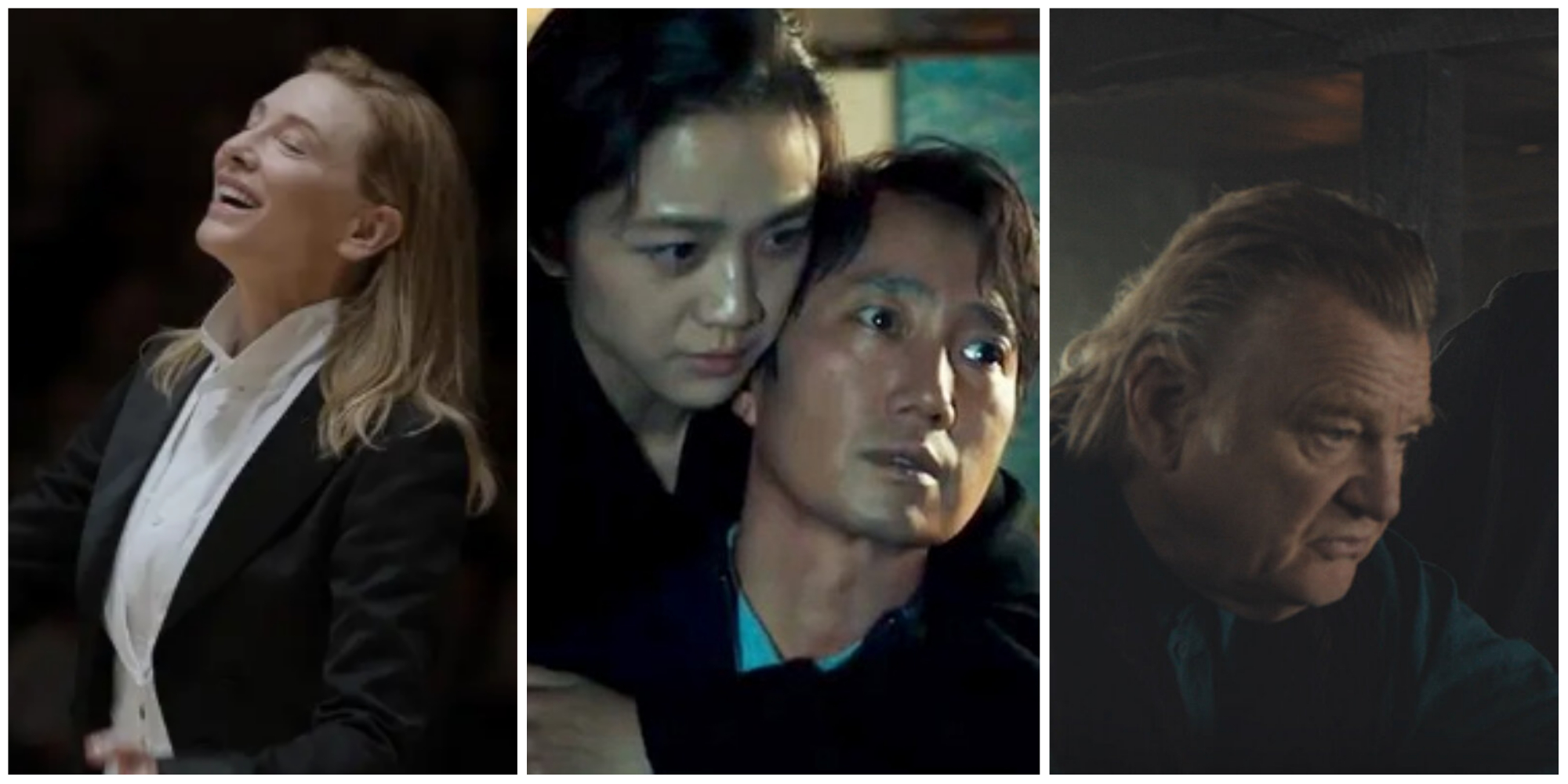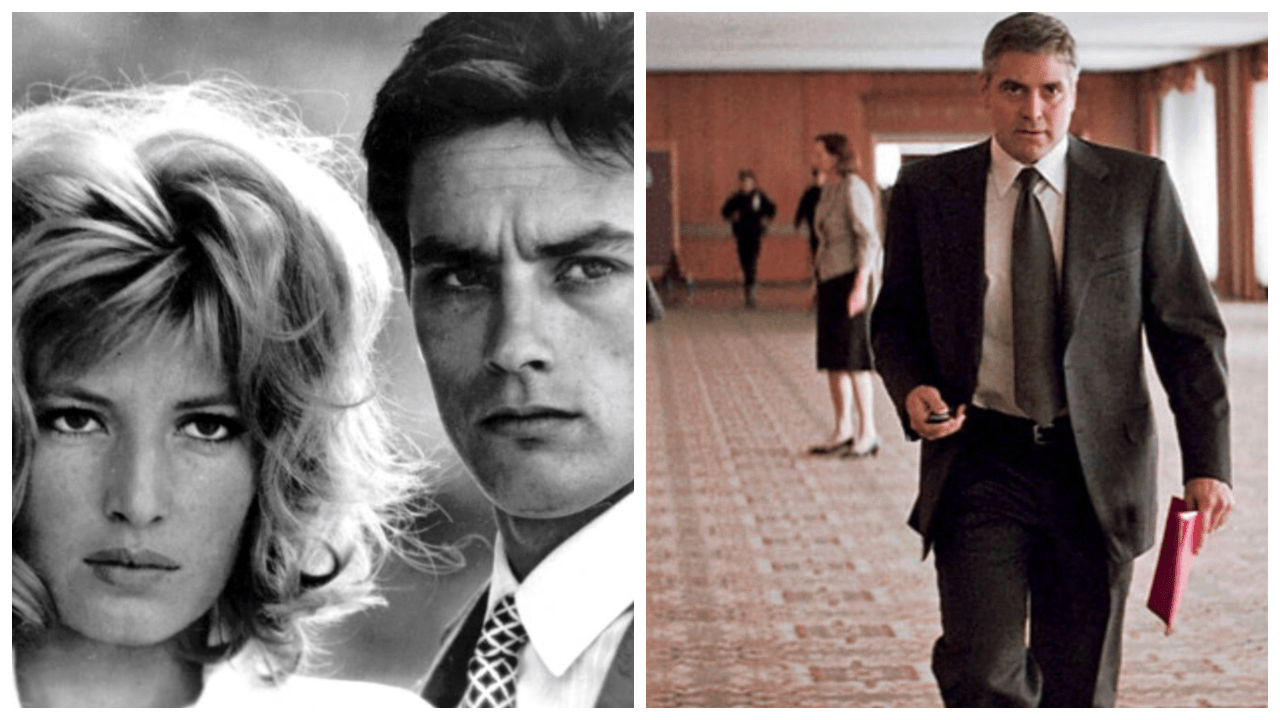We all want Cate Blanchett to be mean to us. There’s a malevolent edge to her charisma, or a charismatic gravity to her malevolence, that draws us in. Her chilly assurance is rooted in old Hollywood glamor, but with a more complex queer sexuality than even the most Code-threatening femme fatale could ever flex—she tries on the old costumes of feminine drag for size with a fluidity we used to call postmodern, but with a sensibility that’s more purposeful than playful. Blanchett radiates a pure self-satisfaction that, let’s face it, men are more often permitted to display on screen. And in Tár, the possibilities of her gender-flipped wickedness are first fully unleashed, then imperfectly restrained.
The underside of this seductive power is at first slowly revealed. Todd Field is clearly not a man in any hurry (it’s been 16 years since his last film, Little Children). Here, the director carefully edges back from the formality and ritual of a life in public spaces to show Blanchett’s Lydia Tár in private, then thrusts that private life into public view like raw meat. Tár even begins with the sort of full credits sequence that’s usually tacked on to a movie’s end, where Netflix can force you to skip it, which gives the film an introductory air of discipline and control while serving as an experiential warning to the viewer: Be patient or go home.
When we finally do meet world renowned symphony conductor Lydia Tár, she’s handily dominating a New Yorker colloquium with Adam Gopnick, a scenario recreated perfectly down to the rote bourgeois laugh cues from the audience. Given her confidence and eloquence, you can see why sTárstruck adult women gush over her backstage, and why a certain kind of insecure man (such as her program manager, who wants to learn her conducting secrets) thrives on her condescension and submits to her authority. Lydia (or is it Blanchett?) has a gift for making arrogance seductive.
Adding to the complexity of this characterization is that Tár’s arrogance feels earned. Professionally, artistically, socially, Lydia Tár is just better than others: She’s sharper, smarter, more emotionally and intellectually attuned to her art. No matter how ignorant or antagonistic to classical music you (I) may be, the film demonstrates her pedagogical persuasiveness to a painful fault. When Tár guest instructs a conducting class, she confronts a young queer Black student who pleads indifference to Bach. She doesn’t just give him a dressing down—she gives a performance, and Blanchett keeps us on edge about how cruel she will be. She taunts, cajoles, grandstands, jokes, and then eventually pounces on the kid.
This is a person who can do damage. Tár conducts herself similarly with the women in her life: her partner, their daughter, her personal assistant. She doles out favors to those who please her, withholds from those who cross her. But a loss of control hovers on the horizon, when she begins simping for her latest crush, a young Russian cellist. (Though even here, the protégé rises to the professional challenge she’s given—even blurred by lust, Lydia’s artistic discernment is intact.) And as her dominance is already eroding, Tár’s involvement with the doomed fate of a former favorite who she blackballed goes public. The party’s over.
Inevitable as it feels, Tár’s downfall is less cinematically rewarding than the spectacle of her basking in her power. In real life, yes, we’d like to see such a manipulative creature brought to justice. But on screen, Tár just becomes less interesting once she’s brought low. And compared to the well-fortified verisimilitude of the movie’s first part, the conclusion’s “real world” inspires doubts. Our real life opinions about (gag) “cancel culture” intrude. Very few disgraced figures have faced consequences this severe, we might say. Yes, but maybe it would be different for a powerful woman, we might respond. The film teeters on the edge of becoming merely topical fodder for takes.
What occasionally trips Tár up as it approaches the finish line isn’t its exploration of gender, or of the crumbling wall between the public and the private, but the instability of genre at this moment in our messy, endless doomscroll of history. What could a movie in 2022 do with such a charming sociopath that would feel narratively fulfilling? A stake through the heart is the traditional method, I believe, and in some ways Tár is a horror film more than a tragedy. In earlier times it might have ended melodramatically with Tár and a jilted lover on one end of a gun or another, and that certainly wouldn’t have been more satisfying.
Instead we witness Blanchett handle the everyday indignity of rolling her own carry-on luggage down the street and finding a job well below her level of expertise—hardly unique experiences among the creative class. The film ends with a cruelly ironic (and very funny) turnaround that lands more like a great punchline than a dramatic resolution. Maybe we just don’t know how anyone’s story ends anymore. But we all know we want Cate Blanchett to be mean to us.
From its workaholic hangdog detective to the mysterious (possibly murderous) gal he’s obsessed with to the Shannon Tweed-ready non-descriptive Cinemax title, Park Chan-wook’s Decision to Leave comes on superficially like one of those terrible erotic thriller homages people on Twitter are always so nostalgically horny for. But the latest from this Korean master of misdirection ain’t no Deep Water. It’s also very unlike The Handmaiden, Park’s deliriously porny 2016 puzzlebox of a period piece. Park’s twist on the neo-noir is actually to strip away the eros (or at least not strip away the clothes) in favor of a pervasive longing that can feel more perverse (and more romantic) than anything a late-night crotch-grinder flick has to offer.
Decision to Leave almost has to be seen in context of Park’s (brace yourselves, Francophobes) oeuvre to fully appreciate the film’s insistent chasteness, not to mention the relative understatement and (again relative) narrative straightforwardness of its first half. There’s still plenty to disorient the Park newbie—sudden jump cuts, momentary gaps in exposition, ghost images of the detective as he spies on his suspect that add an edge of voyeuristic intimacy. And halfway through, Park enters more familiar territory, as what seems like a dark coda becomes an even darker mirror image of the first act, manifesting the noir truism that the more indisputable facts you’re given, the more unfathomable the human motives that lurk behind them.
Detective Hae-jun (Park Hae-il) splits his time between Busan, where he’s diligently working a seemingly dead-end murder case, and his small, misty seaside home, where his adorably nerdy scientist wife waits faithfully. Then a rich man topples from a mountain cliff, and Hae-jun has to decide whether it was a simple accident, a suicide, or the workings of the deceased’s Chinese-born widow Seo-rae (Tang Wei). And so here we are with a standard “Did she or didn’t she?” You know how this story goes: The more he learns about her past, the more information, both suspicious and exculpatory, he’s forced to sift through, and so are we. Her alibi is airtight, but her demeanor is curiously unshaken and her medical history suggests a history of domestic abuse. What to believe?
As will happen in such films, surveillance soon leads to romance and suspicion to fascination. Rather than rumpling bedsheets, though, detective and suspect ensconce themselves in a temporary simulation of domestic life, cooking together even while their linguistic difficulties (Seo-rae’s Korean is a bit patchy) add to the flirtation and both complicate and necessitate intimacy. Another innovative wrinkle is how adeptly Park integrates phone tech into his narrative, an ongoing learning process for even adept filmmakers. Texts, voice files, translation and tracking apps all play their part in the movie, as they do in our lives.
None of which would matter without the ability of Park’s leads to wend through the emotional maze he’s constructed for them. Park Hae-il is probably best known in the U.S. for his two films with Bong Joon-ho, Memories of Murder and The Host. Wei’s 2007 debut in Ang Lee’s Lust, Caution was so steamy she was basically chased out of China by bureaucrats; in the time since she’s found a successful commercial film career in Hong Kong with timeouts for artier fare like the slow cinema of Gan Bi’s Long Day's Journey Into Night. Together they pull off the difficult maneuver of keeping desire on a low simmer for more than two hours without letting it go flat.
As always with Park, and often in Korean cinema, genres collide with a haphazard energy. Soapy melodrama suds up into dark absurdism; gritty crime drama turns slapstick. There’s a thrilling rooftop chase that’s also, as it would be in life, a little klutzy. There’s at least one climactic suicide that’s far less gory than the Park usual, but even more haunting for that. By the end, our detective has lost his marriage, the woman he may “love” (whatever that could mean in his context), and maybe, most crucially to his identity, his sense of professional certainty. As he staggers along a shoreline calling fruitlessly for Seo-rae, his detective’s faith that all questions have answers crumbles, because the more he’s learned about the missing woman, the more opaque she seems. Is she the wicked manipulator of noir yore? A misunderstood romantic? A traumatized young woman expressing her desires anyway she can? Or is she just, you know, bad news?
The Banshees of Insharin comes packaged beneath a deceptive surface as well. Awash in lush emerald greenery and loquacious lyrical patter, writer-director Martin McDonagh’s latest is at first indistinguishable (to an occasionally annoying fault) from your typical crowd-pleasing dollop of Irish light-arthouse begorrah. But slowly the story burrows away below its charming veneer, the peppered “feckings” and quaintly cliched folkways of the script, to reveal the slowly corrosive emotional effects of life in an isolated village. This is not the movie your mom and dad expected to see at the Lagoon.
Inisherin in 1923 is an isle of small farmers by day, soused pub patrons by night, its populace rounded out by the standard stock characters—a village gossip, a cruel policeman, a cheery barkeep, a mysterious crone. They’re proximate enough to the Civil War on the mainland to see flashes of gunfire just across the water, blithe enough about their isolation to express a somewhat smug indifference. It can’t reach them, after all. The problem, McDonagh lets on, is that nothing else can either.
At the film’s core are two very differently expressive faces: Colin Farrell, all befuddlement and eyebrows, and Brendan Gleeson’s wrinkled knuckle of a mug, every crease marking another wasted year. One day Farrell’s Pádraic strolls down to the same pub he does every day to chit chat with his lifelong pal, Colm (Gleeson), only to be greeted with indifferent silence and aversion before he’s told, “I just don’t like you no more.”
Denied his one social outlet, Pádraic is left to banter with his bookish, thwarted sister Siobhán (Kerry Condon), the town dullard, Dominic (Barry Keoghan, for once a sympathetic victim rather than a pure agent of malevolence), and his beloved donkey, Jenny. But he can’t quit Colm, even when the fiddler vows to lop off a finger each time Pádraic approaches him. And this need, this lack, and the insoluble riddle of his abandonment obsesses and corrupts him, till his desperation reaches a level somewhere between a romcom clod refusing to accept a breakup and a Bergman protagonist beholding the silence of God.
The hook here may be Gleeson and Farrell reunited for the first time since McDonagh’s 2008 directorial debut, In Bruges. But though their sporadic clashes are memorable, they do much of their best work here apart from each other, nursing their wounds in solitude or in the insufficient company of others. Gleeson alternately bristles and collapses beneath the weight of a sense of lack his life has barely given him the words to express. Facing down mortality, seeing nothing but years of empty village life behind him, Colm pours himself into his fiddling, his songwriting, working with music students, and avoiding his timesuck of his former buddy conversational inanity. But he spends most of his time home alone sulking with his dog. And mutilating his fiddling hand.
Though less bloody, Farrell’s descent is even more grim. Suddenly faced with the prospect that his niceness, which he always considered an asset, is in fact a sign of emptiness, Pádraic allows his personality to curdle. He cultivates a meanness that can pass for a personality in his stultified town. A man of no particular inner depth suffering a crisis of conscience is truly a brutal thing to behold.
The depth of these performances, the irreducible humanity that comes from the men’s refusal or inability to articulate entirely what’s happening inside them, carries Banshees past McDonagh’s occasional pat didacticism. He’s committed to showing the darker mirror image of the rural cliche that the common folk are the salt of the earth—that they’re caught within a stranglehold of parochial small-mindedness. The one solely decent character of any depth escapes to the mainland. It’s a truer story than most, but still an incomplete one. So, depending on their sensibilities, I guess this may be the movie your mom and dad expected to see at the Lagoon after all.
Tár, Decision to Leave, and The Banshees of Insharin are showing in local theaters now. Find our complete film listings here.






